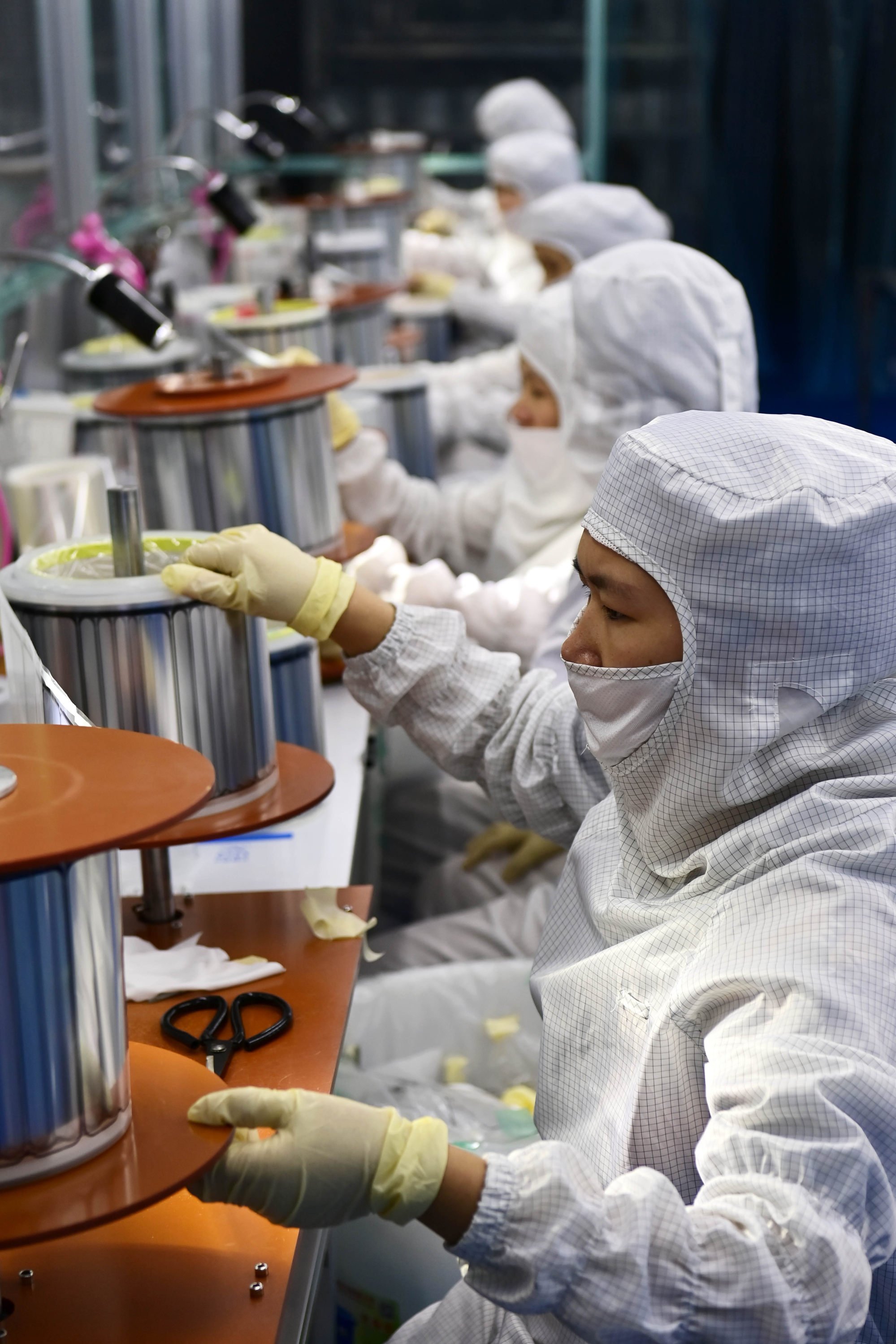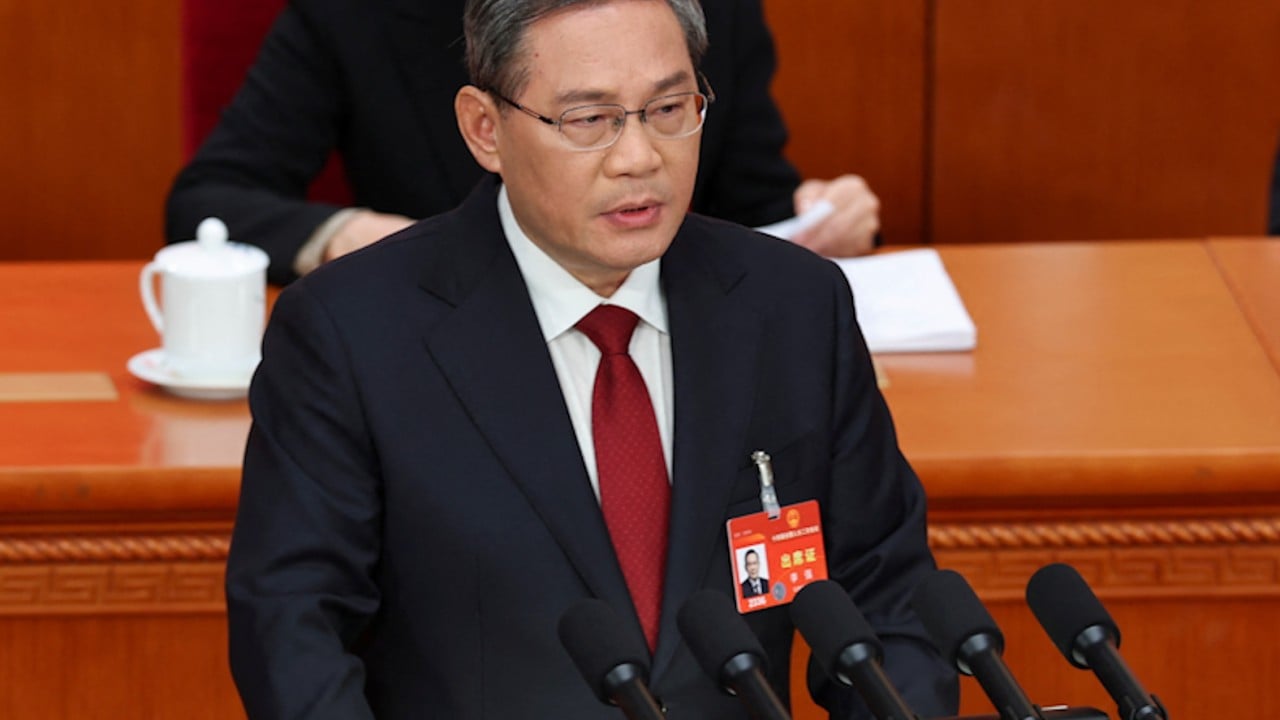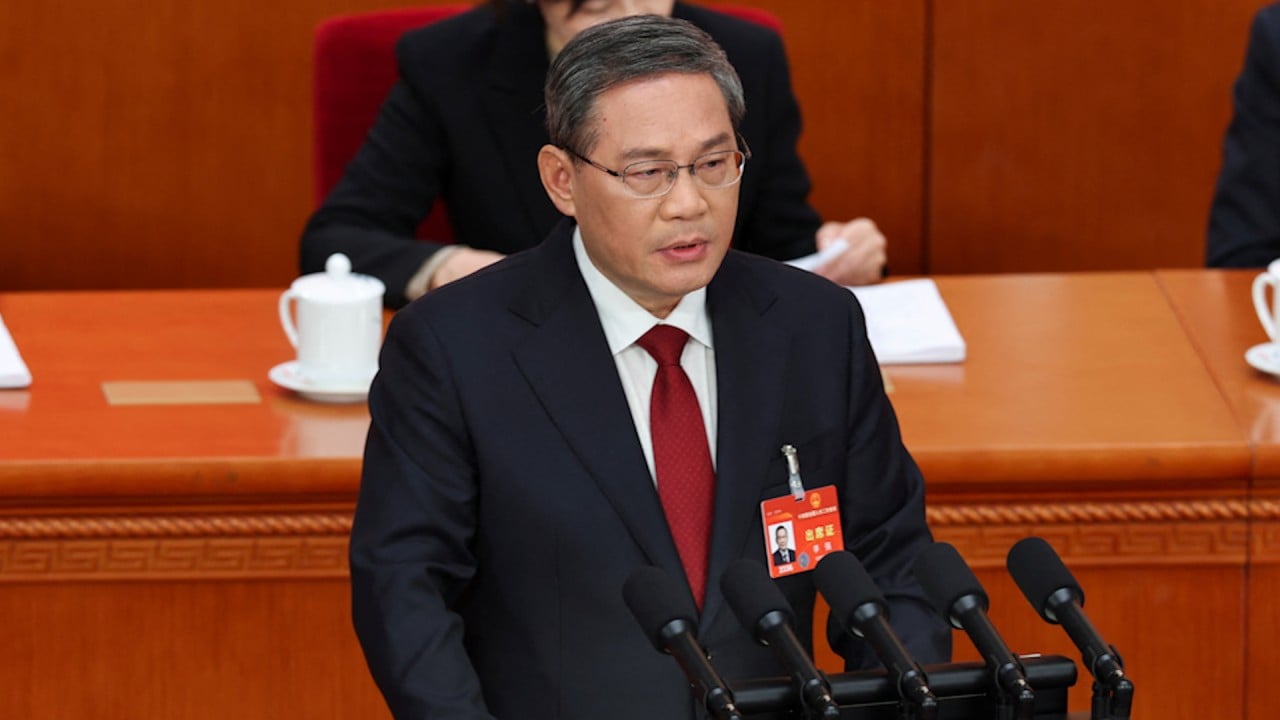Beijing will boost investment in science and technology by 10 per cent this year as it tries to transform the economy and deal with constraints imposed by the West.
That amounts to 379.8 billion yuan (US$52.7 billion) of spending, according to the finance ministry’s draft budget report released during the annual legislative sessions in Beijing on Tuesday.
Science and technology has taken on unprecedented significance in this year’s budget, with the largest percentage increase of any major area of government spending – more than diplomacy, public security, education and defence – and it marks a big jump from last year’s 2 per cent rise.
But it is far less than China’s overall spend on research and development – from government and the private sector – which surpassed 3.3 trillion yuan last year, according to Science and Technology Minister Yin Hejun.
In dollar terms, China is the world’s second biggest spender on research and development after the United States.
While there were budget constraints affecting other sectors, science and tech would continue to see “guaranteed expenditure” because of its pivotal role in driving China’s development, according to the finance ministry.
Premier Li Qiang said ultra-long special treasury bonds would be issued annually to fund critical national strategies and boost security capabilities in vital research and development areas. This year 1 trillion yuan worth of the bonds will be issued.
The aim was to “systematically address funding shortages facing some major projects for building a great country and advancing national rejuvenation”, Li said in his government work report.
Science and tech has emerged as one of Beijing’s priorities amid a push for technological self-reliance to counter efforts by Western powers to restrict China’s access to cutting-edge technologies.
“The external environment has increasingly impacted on China’s development,” Li said, citing factors including geopolitical conflict and protectionism.
“We should give full rein to the leading role of innovation, spur industrial innovation by making innovations in science and technology and press ahead with new industrialisation.”
Risks ahead but China’s economy to stay on long-term, tech-led course
Risks ahead but China’s economy to stay on long-term, tech-led course
The work report identified emerging areas such as biomanufacturing and commercial space flight to serve as new growth engines.
It also highlighted the importance of revitalising China through science and education, and laying a solid foundation for “high-quality development” by investing in training and mobilising resources to boost innovation.
That was also reflected in the National Development and Reform Commission’s draft plan for economic and social development for 2024. It identified modernising the industrial system through innovation as a top priority among its 10 key tasks.
The NDRC plan calls for a comprehensive approach to do this – by providing support for basic research, pooling resources to achieve breakthroughs in critical technologies, and fostering emerging industrial clusters.
The finance ministry said it would lean towards “basic research, applied basic research and tasks that are strategically important for the country” in allocating spending for science and technology.
Some 98 billion yuan has been earmarked for basic research, an increase of 13.1 per cent from 2023.
More money will also be spent on nurturing and attracting talent, including strengthening support for young researchers and giving leading scientists greater control over resources.

Science and Technology Minister Yin told reporters that total expenditure on research and development in 2023 was up 8.1 per cent from the previous year and accounted for 2.64 per cent of GDP.
The investment was paying off, according to Yin. He said Chinese scientists were making progress in fields such as quantum information, integrated circuits, artificial intelligence and biomedicine.
The minister also noted the “impressive” growth in exports of new energy vehicles, lithium batteries and solar cells.
Sun Yutao, a professor with Dalian University of Technology’s School of Economics and Management, said the continued investment in science and technology despite the sluggish economy suggested it was a priority area.
And despite the external pressures, Sun believed the focus on science and tech was being driven more by domestic factors.
“China is undergoing a structural upgrade of its economy,” he said. “To propel a new leap forward in productivity, scientific and technological innovations are the key driving force.”
China’s defence budget signals military readiness, not imminent war, experts say
China’s defence budget signals military readiness, not imminent war, experts say
That view was echoed by Mu Rongping, director general of the Chinese Academy of Sciences’ Centre for Innovation and Development. He said the growth in spending on science and technology would have a far-reaching impact on China’s long-term development.
“Emerging, fundamental and strategic innovations entail higher risks and therefore require more substantial investment from the central government,” Mu said, adding that more funding would also follow from local governments and the private sector.



